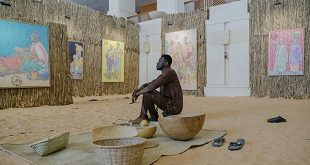
By Bob Roberts Katende
It is 10.45 am on July 15 and the place is Room 408 of Parliament Building. The house is buzzing with activity as journalists swarm around with their notebooks and cameras loosely craning their necks.
Five men from the Uganda Land Commission (ULC) emerge from the elevator and head straight into the room of one of parliament’s most active committees, the Public Accounts Committee (PAC). This committee is one of the most dreaded or celebrated in parliament depending on who is saying it.
PAC is mandated to examine the audited accounts of public enterprises and bodies which are funded from the national treasury.
The ULC is charged with overseeing public land in trust of the various government institutions. The commission’s accounting officer, Kintu Mubbala, and his team are before PAC to answer queries raised in the Auditor General’s report of the financial year ended 2005/2006.

“Item number 463: Acquisition and Disposal of land,” the Committee Clerk reads AG’s query. Mubbala adjusts his spectacles and begins reading from his written response. “Hon chairman, we have the powers to buy land as enshrined in Section 54 of the Land Act.”
“And to sell?” PAC chairman, Nandala Mafabi interjects.
Mubbala pauses: “Even to sell, Mr Chairman.”How much land does the commission have?” Nandala asks. Mubbala keeps quiet. He looks at his colleagues on either side but they can’t help him. “How do people, for example, deep down in the hills in my village know that you have land to sell? Nandala continues. Mubbala remains mute.
Under interrogation, the committee discovers that ULC has no register for all the government owned land. In its earlier report of financial year ended 2003 and a special report about Butabika Hospital land, similar queries had been raised. To stop the problem from recurring, PAC recommended that money be allocated to ULC through parliament to have all government land surveyed and titles acquired to avoid loss and encroachment.
But because the report has never been debated on the floor of the House, the recommendations have not yielded any results. The 2003 report is part of other two PAC reports and many other committee reports that are gathering dust on the shelves of the Clerk of Parliament’s office.
“We have done our part and the rest is now left to Clerk to decide when they should debate the reports,” says Mafabi.
The 2005 report also noted that many government vehicles are abused thus “resulting in soaring fuel and repair costs.” PAC recommended that the Ministry of Works, Transport and Communication should “enforce government Standing Orders on acquisition, use and maintenance of government vehicles” which requires that such vehicles be parked at office by close of business at 5pm. The Standing Orders have been violated with impunity since government vehicles are always parked outside bars at night and carrying food, charcoal bags and other provisions for the officials’ domestic use at the taxpayer’s cost.
The 2003 PAC report also noted that “most ministries had resorted to borrowing funds meant for project implementation to fund their budgets.” Kazibwe Tom, Ntenjeru MP, says this hampers the delivery of services. About two weeks back the Ministry of Finance requested parliament for an additional loan of US $4 million for the Sustainable Management of Mineral Resources Project.
The ministry had earlier borrowed US$42.7 million but only 11.4 million was used for the actual purpose of geo-information and development, which was to ascertain the amount of mineral deposits in Uganda. MPs were stunned to learn that the balance of the loan had been diverted to capacity building which included holding workshops and seminars.
The report notes that many ministries and other government institutions tend to spend more money beyond what was approved by parliament. For example in 2003, over Shs20 billion was used by Uganda Revenue Authority without Parliament approval. The report declared such “acts by ministries and departments” illegal and should stop. Moreover no effort is made by these ministries to involve the Secretary to the Treasury.
That has never stopped.
Committee members are concerned that if such reports are never debated by parliament, their efforts in fighting abuse of government funds will be a waste. “Our morale dwindles,†says Saleh Kamba, Kibuku County MP. “If you make recommendations and they are never honoured, what do you expect?”Kazibwe asks. “Most problems are reoccurring,” he adds.
The Coordinator of the Anti-Corruption Coalition, Jasper Tumuhimbise concurs with Kazibwe saying the failure to implement recommendations means that “what they have been doing is nothing.”
However Tindamanyire Kabondo, Bunyaruguru County MP, and a member of PAC thinks otherwise. “Whether the reports are debated or not, changes are effected. Questioning alone causes an effect. During the quizzing, you realise that accounting officers are learning something.”
Other members are concerned that parliament spends so much time on trivial issues. For example the plenary has spent about two weeks discussing whether to pass a motion that praises President Museveni for the “clear and precise exposition of government policy contained in the State of the Nation Address of June 4.” They say such crucial time should be spent debating important pending committee reports.
Tumuhimbise advises PAC to stop reviewing other reports of audited accounts until the finished ones are disposed of by Parliament.
 The Independent Uganda: You get the Truth we Pay the Price
The Independent Uganda: You get the Truth we Pay the Price

